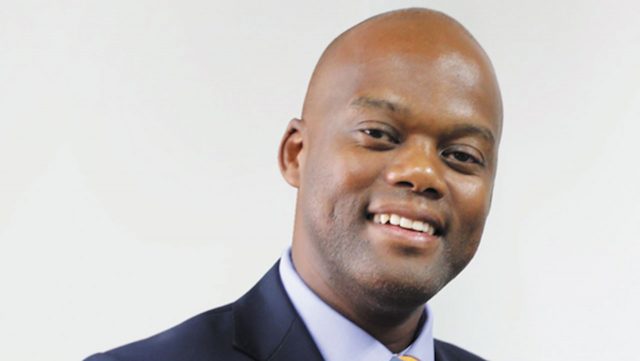Secretary-General, AfCFTA, Wamkele Mene.
Ahead of the African Continental Free Trade Agreement (AfCFTA) implementation in Nigeria, the Nigerian Institute of Chartered Arbitrators and other stakeholders are seeking dispute resolution mechanisms that will address concerns of non-state entities. According to the stakeholders, the Dispute Settlement Mechanism (DSM) of the AfCFTA leans more towards a state-to-state dispute settlement system, while neglecting non-state entities that are involved in actual trading under the pact.
Speaking during a roundtable discussion held in collaboration with the Nigerian Chambers of Commerce Dispute Resolution Centre and the National Action Committee for African Continental Free Trade Agreement, Professor Jonathan Aremu, a Professor of International Economic Relations, at Covenant University as well as a Consultant to ECOWAS, pointed out that “Article 1 under the agreement defines dispute as a disagreement between State Parties.
“This implies by way of interpretation that only countries can institute actions before the dispute settlement body to resolve any disputes that arise under the AfCFTA. That goes to show that the Dispute Settlement Mechanism (DSM) of the AfCFTA leans more towards a state to state dispute settlement system” he said.
The discussion focused largely on the Dispute Resolution Mechanisms involving non-state parties, implications of the current dispute resolution arrangement, the concerns of non-state parties and the domestication of AfCFTA in Nigeria.
At the virtual conference, experts from business, government, trade and law examined the Africa intra-trade agreement which has been described as one that could break the cycle of poverty on the continent.
Aremu further stated that by giving only States the capacity to bring actions under the agreement, non-state parties (private entities) are eliminated from the equation.
“The main challenge here is that, in reality, the majority of the trading in goods and services, as well as other economic activities in AfCFTA, are not done by States but by private persons. So this leaves aggrieved persons or companies to find recourse by petitioning their participating home State to take action on their behalf,” he said.
Though many have questioned the delay in domesticating the AfCFTA, the Nigerian Office of Trade Negotiations responded at the summit that it was working to put the framework in place, as well as addressing the legal issues regarding the implementation of the agreement.
This, it said has given other bodies and associations the opportunity to dig out some lacunas of the agreement.
There are no clear rules yet in the dispute settlement bodies and no defined procedures as to what happens when disputes arise.
Although arbitration has been gaining momentum in dispute resolution, Dr Ken Ukaoha, Secretariat President at National Association of Nigerian Traders stated that “arbitration is good for dispute settlement but the AfCTA Arbitration centres are located in places, not in proxy to the parties”.
Ukaoha further stated that more needs to be done in terms of investment negotiations so that it not only favours Nigeria but ensures that private entities and their rights are properly protected.
According to the data shared during the virtual conference, there are over six million SMEs in the country and less than fifty per cent of them understand what AfCFTA is all about.
Chairman, Small and Medium Enterprises Development Agency of Nigeria (SMEDAN), Dr. Otunba Pedro, therefore urged that efforts should be made to create awareness for the SMEs to know about AfCFTA. “We must do more to build their capacity to compete internationally and properly function in the market,” he said.

